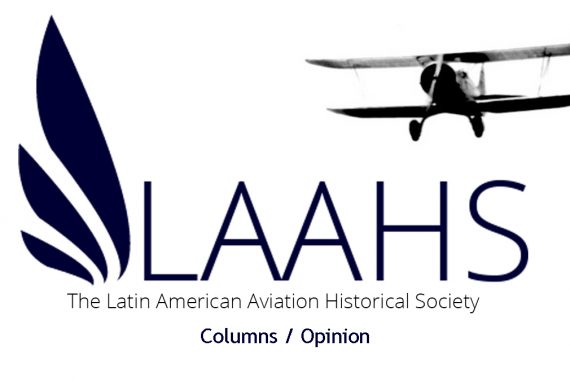Being a Good Witness

Consider this for a moment: Suppose there had been one -just one- trained, dedicated, disciplined observer, on the ground the day that the very first military aircraft flew in each of the 21 Latin American republics.
Think of it. Here we are, barely 100 years into practical, manned flight, and for lack of such witnesses at those seminal events, we are left struggling to establish, in most cases, the most elementary facts about the aircraft, airmen, dates, etc. They may as well have been events of the prehistoric era – black-and-white, fuzzy images more legendary than tangible.
Some would say that it is “too late” to seek out the details of aviation history from a period when, in many cases, record keeping of any sort was scanty, at best. I prefer to say that time is running out to do so. For if that first pilot was, himself, 21 years of age in 1924, there is an outside chance that he may still be with us. There is still time to find him – and those who followed after him.
I feel very strongly that there are a combination of traits and skills that a good Aero-Historian must possess, as a minimum. First and foremost, he (or she!) must have a passion for aviation and aircraft. This trait can make up for a host of other failings!
Secondly, the good Aero historian must speak airplane fluently. The importance of this cannot be overstressed. It is an ability developed mainly from reading anything and everything one can (with a passion, of course!) on the subject, and assimilating that data. However, it is equally important to know where to locate answers when your own knowledge of aircraft, or your own resources just can’t get you where you need to be.
Honesty, integrity and a certain degree of self control must also enter into the mix. We all know of “collectors” who delight in hoarding photos, slides, data and even “facts” when the essence of an Aero-Historian is to share what he learns with others. Our fraternity is a small one and populated, to a very gratifying degree, by folks with whom we are all very comfortable; however, it takes only one or two “barracudas” in our midst to discredit us all. In short, be an avid student of our subject (as opposed to self-styled “expert” – a word that this writer, in particular, abhors) and share what you learn. You will find that the benefits of such selflessness are very gratifying.
Being a good witness to Latin American Aviation History requires no special tools or collegiate education. It consists of studying, making notes of your observations in what some might consider excruciating detail, and checking and double-checking your findings. It means listening to “old timers” and seeking them out, wherever they may be, and letting them know that you love airplanes and flying and want to know their story. It means not cutting corners – and striving for accuracy.
You may not think of yourself as an Aero historian. It is not something that is bestowed upon you at a ceremony, or via some magic wand. It mainly devolves upon you by being a good witness.